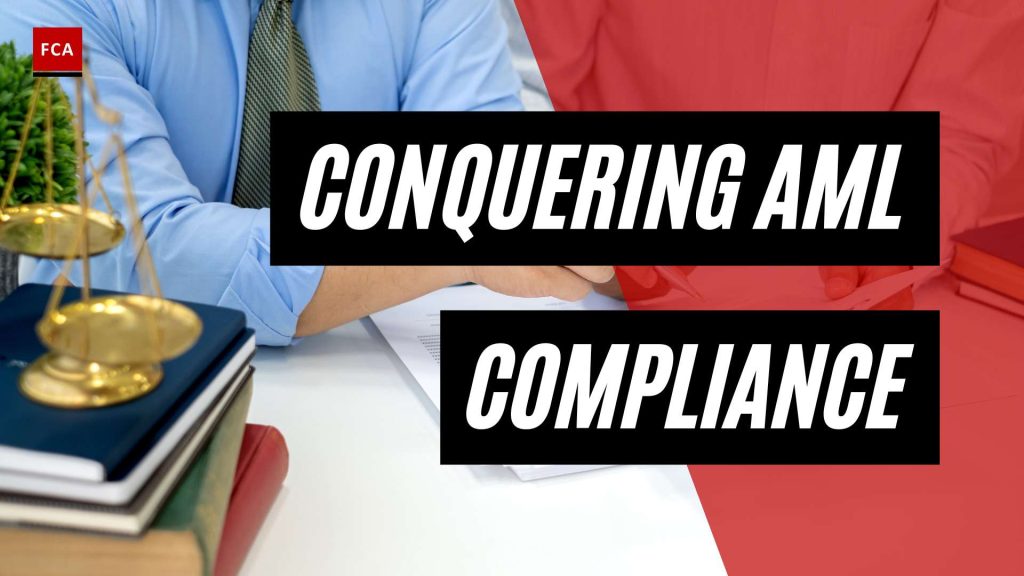Overview of AML Regulatory Bodies
To combat the global issue of money laundering and ensure the integrity of financial systems, various regulatory bodies have been established to set standards and enforce anti-money laundering (AML) regulations. Understanding these regulatory bodies is essential for organizations and professionals working in compliance, risk management, anti-money laundering, and anti-financial crime.
Financial Action Task Force (FATF)
The Financial Action Task Force (FATF) is an international organization that plays a significant role in the fight against money laundering and counter-terrorism financing. It sets global standards for AML and CTF measures, providing guidance and recommendations to jurisdictions worldwide. The FATF’s guidelines serve as a benchmark for countries to develop and enhance their AML regulatory frameworks, promoting consistency and cooperation in the global fight against financial crimes.
United States: Bank Secrecy Act (BSA)
In the United States, the Bank Secrecy Act (BSA) is a cornerstone of AML legislation. Enacted in 1970, it requires financial institutions to establish AML programs, report suspicious activities, and maintain records of cash transactions. The BSA, along with its implementing regulations, provides a comprehensive framework for AML compliance in the United States.
United Kingdom: Financial Conduct Authority (FCA)
The Financial Conduct Authority (FCA) is the regulatory body responsible for overseeing and enforcing AML regulations in the United Kingdom. The FCA ensures that financial institutions and designated non-financial businesses comply with AML requirements. It sets out guidelines, conducts inspections, and takes enforcement actions to combat money laundering and protect the integrity of the UK’s financial system.
Financial Crimes Enforcement Network (FinCEN)
The Financial Crimes Enforcement Network (FinCEN) is a bureau of the U.S. Department of the Treasury. It plays a pivotal role in combating money laundering and other financial crimes in the United States. FinCEN collects and analyzes financial transactions, maintains a database of Suspicious Activity Reports (SARs), and provides valuable intelligence to law enforcement agencies and financial institutions.
International Monetary Fund (IMF)
While not solely dedicated to AML regulation, the International Monetary Fund (IMF) plays a crucial role in promoting international cooperation and assisting member countries in developing robust AML frameworks. The IMF provides guidance, technical assistance, and training to support countries in implementing effective AML measures, strengthening their financial sectors, and addressing vulnerabilities related to money laundering and terrorist financing.
European Union: Anti-Money Laundering Directive (AMLD)
The European Union’s Anti-Money Laundering Directive (AMLD) is a legislative framework that sets out AML regulations for EU member states. The AMLD aims to harmonize and strengthen measures against money laundering and terrorist financing within the EU. It establishes minimum requirements for AML controls, customer due diligence, suspicious transaction reporting, and cooperation among EU member states.
Understanding the roles and responsibilities of these AML regulatory bodies is crucial for organizations and professionals involved in AML compliance. Compliance with the guidelines and regulations set forth by these bodies is essential to mitigate the risks associated with money laundering, protect the integrity of the financial system, and contribute to the global fight against financial crimes.
Importance of AML Compliance
In the world of financial crime prevention, compliance with Anti-Money Laundering (AML) regulations is of paramount importance. Failure to comply with these regulations can have significant consequences for both individuals and organizations involved. This section explores the consequences of non-compliance with AML regulations, including financial penalties and fines, reputational damage and loss of trust, as well as legal consequences and criminal liability.
Financial Penalties and Fines
Non-compliance with AML regulations can result in severe financial penalties and fines. Regulators worldwide are increasing their scrutiny and enforcement actions when it comes to AML compliance, with penalties for non-compliance becoming more severe over the years (Financial Crime Academy). Financial institutions that fail to meet AML requirements may face significant fines, which can reach millions or even billions of dollars. These fines not only impact the financial stability of the organization but also serve as a deterrent for future non-compliance.
Reputational Damage and Loss of Trust
Reputation is a valuable asset for any organization, and non-compliance with AML regulations can cause substantial reputational damage. Companies that fail to implement effective AML controls may face loss of customer trust and confidence. Negative publicity surrounding non-compliance can tarnish an organization’s brand image and erode the trust of clients, investors, and stakeholders. Rebuilding a damaged reputation can be a challenging and lengthy process, making it vital for organizations to prioritize AML compliance to maintain their integrity in the eyes of the public.
Legal Consequences and Criminal Liability
Non-compliance with AML regulations can also lead to legal consequences and criminal liability. Individuals involved in AML violations may face potential jail time and criminal prosecution. Financial institutions that fail to comply with AML regulations may be subject to legal action, which can include civil lawsuits and regulatory sanctions. The legal consequences can extend not only to the organization as a whole but also to individuals within the organization who were aware of or involved in the non-compliant activities.
It is crucial for organizations and individuals to understand and adhere to AML regulations to avoid the severe consequences of non-compliance. Establishing robust AML compliance programs and implementing effective controls can help mitigate the risk of financial penalties, reputational damage, and legal consequences. Staying updated with the evolving AML laws and guidelines, as well as collaborating with regulatory bodies and sharing information, are essential steps toward maintaining AML regulatory compliance.
For resources and further information on AML regulatory compliance, refer to organizations such as the Financial Crime Academy, Dow Jones, the FDIC, Sanction Scanner, and the KYC Hub.
AML Compliance Programs and Requirements
To effectively combat money laundering and meet regulatory obligations, financial institutions must establish robust AML compliance programs. These programs encompass various requirements, including customer due diligence (CDD), transaction monitoring and reporting, employee training and awareness, and the use of technology solutions.
Customer Due Diligence (CDD)
Customer due diligence is a fundamental component of AML compliance programs. It involves the thorough verification and assessment of the identity and background of customers and beneficial owners. By conducting CDD, financial institutions can understand the nature of the customer’s business, assess the risk associated with the customer, and detect any potential suspicious activities.
CDD measures typically include:
- Verifying the customer’s identity using reliable and independent sources of information.
- Identifying and verifying beneficial owners who have a significant ownership interest in a customer.
- Assessing the purpose and intended nature of the business relationship.
- Conducting ongoing monitoring of customer transactions to ensure consistency with their expected activities.
Transaction Monitoring and Reporting
Transaction monitoring and reporting play a crucial role in detecting and preventing money laundering and other illicit activities. Financial institutions are required to establish systems and processes for monitoring customer transactions, identifying suspicious patterns or activities, and reporting them to the appropriate regulatory authorities.
Key aspects of transaction monitoring and reporting include:
- Utilizing technology solutions such as transaction monitoring systems to analyze large volumes of data and identify potential red flags.
- Implementing robust processes for investigating and escalating suspicious transactions.
- Maintaining records of transactions and reporting them to regulatory authorities as required.
- Adhering to AML regulatory requirements and guidelines provided by regulatory bodies like the Financial Action Task Force (FATF).
Employee Training and Awareness
Employee training and awareness programs are vital to ensure that employees understand their responsibilities and obligations regarding AML compliance. Training should cover topics such as recognizing red flags, understanding AML laws and regulations, and reporting suspicious activities.
Key elements of employee training and awareness include:
- Regular training sessions to educate employees on the latest AML regulations, trends, and typologies.
- Providing employees with clear guidance on their roles and responsibilities in preventing money laundering.
- Encouraging a culture of compliance within the organization and promoting reporting of suspicious activities.
Technology Solutions for AML Compliance
Technology solutions play a significant role in enhancing AML compliance efforts. Financial institutions can leverage advanced software and tools to automate processes, improve efficiency, and enhance the effectiveness of their AML programs.
Common technology solutions for AML compliance include:
- Transaction monitoring systems that use algorithms to detect suspicious patterns and activities.
- Watchlist screening tools that check customer and transaction data against known lists of sanctioned individuals and entities.
- Blockchain analysis tools that help identify and trace suspicious transactions involving cryptocurrency.
- Customer identity verification solutions that utilize digital identity verification and document authentication.
By integrating technology solutions into their AML compliance programs, financial institutions can enhance their ability to detect and prevent money laundering activities, ensuring compliance with AML legislation and regulations.
Implementing comprehensive AML compliance programs and adhering to regulatory requirements is critical for financial institutions to mitigate legal and reputational risks, maintain public trust, and combat financial crimes effectively. By staying updated on evolving AML laws and guidelines, collaborating with regulatory authorities, and utilizing technology solutions, financial institutions can strengthen their AML compliance efforts and contribute to a robust global AML regulatory framework.
Evolving AML Regulations and Compliance
To ensure the effectiveness of anti-money laundering (AML) efforts, regulatory bodies continuously scrutinize compliance practices, enforce regulations, and make changes to AML laws and guidelines. Staying informed and adapting compliance programs accordingly is crucial for organizations to meet their obligations and maintain a strong AML framework.
Regulatory Scrutiny and Enforcement Actions
Regulators worldwide are increasing their scrutiny and enforcement actions when it comes to AML compliance. The consequences of non-compliance can be severe, including hefty fines, loss of reputation, and potential jail time for individuals involved in the violations (Financial Crime Academy). Regulators, such as the Financial Action Task Force (FATF), regularly update their guidelines and standards for AML measures and enforcement. Failure to comply with these guidelines can have detrimental effects on businesses and individuals (Financial Crime Academy). It is crucial for organizations to proactively monitor and address any gaps in their AML compliance programs to mitigate the risks associated with regulatory scrutiny and enforcement actions.
Changes in AML Laws and Guidelines
AML laws and guidelines are subject to regular updates in response to emerging risks and evolving financial crime techniques. Financial institutions and other regulated entities must stay abreast of these changes to ensure compliance and mitigate the risks associated with money laundering and other illicit activities. For example, the Bank Secrecy Act (BSA) in the United States, which was the first major AML law, has been expanded over the years, with additional requirements introduced by the USA PATRIOT Act in 2001 (Investopedia). Organizations must actively monitor and assess changes in AML laws and guidelines to ensure their compliance programs remain up to date.
Collaboration and Information Sharing
Collaboration and information sharing among regulatory bodies, financial institutions, and other stakeholders play a vital role in combating money laundering and financial crimes. Sharing knowledge, best practices, and emerging trends enhances the collective ability to detect and prevent illicit activities. Organizations are encouraged to participate in information-sharing initiatives and industry forums to stay informed about the latest AML trends, typologies, and regulatory expectations. Additionally, collaboration between public and private sectors can facilitate the development of effective AML strategies and improve overall compliance efforts.
Staying Updated and Adapting Compliance Programs
The landscape of AML regulations and compliance requirements is constantly evolving. Financial institutions and other regulated entities must prioritize staying updated on regulatory changes and adapt their compliance programs accordingly. This includes conducting regular risk assessments, monitoring emerging AML trends, and implementing necessary changes to policies, procedures, and controls. Utilizing technology solutions that can automate AML processes and enhance detection capabilities can also help organizations keep pace with evolving AML regulations.
To stay informed, organizations can leverage resources such as the Financial Crime Academy, Dow Jones, FDIC, Sanction Scanner, and KYC Hub. These resources provide valuable information, insights, and tools to support AML regulatory compliance efforts.
By proactively monitoring regulatory changes, collaborating with industry peers, and leveraging relevant resources, organizations can navigate the evolving AML landscape and ensure their compliance programs meet the requirements of the regulatory bodies overseeing AML efforts.
Resources for AML Regulatory Compliance
Ensuring AML regulatory compliance is of utmost importance for businesses and financial institutions. To support organizations in navigating the complex landscape of anti-money laundering, several resources are available. These resources provide guidance, tools, and information to enhance AML compliance programs. Here are some notable resources in the field:
Financial Crime Academy
The Financial Crime Academy offers comprehensive training programs and resources to educate professionals on the consequences of non-compliance. Their courses cover various aspects of AML regulations, helping individuals and organizations stay informed and up to date.
Dow Jones
Dow Jones provides solutions and services to support AML compliance programs. Their offerings include risk assessment tools, due diligence solutions, and compliance program management. Dow Jones equips organizations with the necessary tools to enhance their AML compliance efforts.
FDIC
The Federal Deposit Insurance Corporation (FDIC) is a regulatory agency that oversees compliance with the Bank Secrecy Act (BSA) in the United States. Their website provides resources, guidance, and updates related to AML compliance for financial institutions.
Sanction Scanner
Sanction Scanner offers a range of compliance solutions to help businesses and financial institutions meet AML requirements. Their platform provides advanced screening capabilities to identify potential risks and ensure compliance with global AML regulations. For more information on the importance of AML compliance, visit their blog.
KYC Hub
KYC Hub offers solutions and resources to facilitate AML compliance. Their platform enables organizations to streamline their Know Your Customer (KYC) processes, enhance due diligence, and ensure compliance with AML regulations. Their blog provides insights and updates on AML compliance practices.
These resources serve as valuable references for organizations seeking to establish and maintain robust AML compliance programs. By leveraging the expertise and tools provided by these resources, businesses can mitigate the risk of non-compliance and contribute to a safer financial ecosystem.








